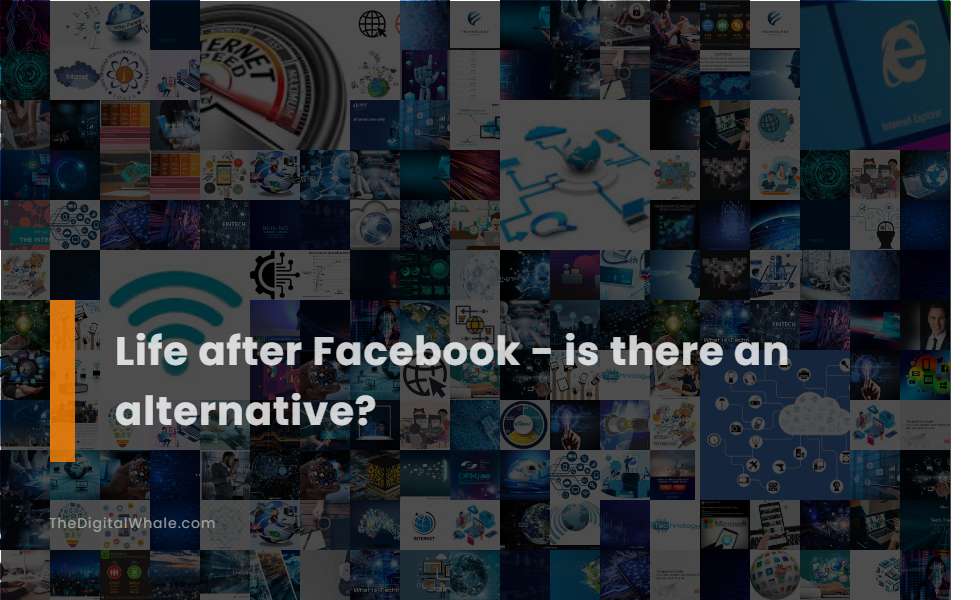Life After Facebook - Is There An Alternative?
What is the best Facebook alternative? What are some good Facebook app alternatives? Let's find out more about Life After Facebook - Is There An Alternative?.

Diaspora: A federated, open-source, and self-hosted social network emphasizing user privacy and data control.
Diaspora* is a Federated, open-source, and self-hosted Social Network that emphasizes user privacy and data control. It operates on a decentralized model with independently run servers (pods), allows users to organize contacts into aspects for targeted sharing, and supports integration with other social networks while giving users full control over their data and online identity. To learn more about this innovative network, visit their website.
Mastodon: A decentralized social network using the ActivityPub protocol, allowing interaction with other compatible platforms.
Mastodon is a decentralized social media platform that uses the ActivityPub protocol, allowing users to interact across independent servers and with other compatible platforms. It emphasizes user control, privacy, and an ad-free experience. For more detailed information on what Mastodon offers and how it functions, you can explore the Hostinger guide, which provides a comprehensive overview of this innovative platform.
Minds: A free and open-source platform with decentralized and centralized options, offering cryptocurrency rewards for content creators.
Minds is a free and open-source, decentralized social network that rewards users with Ethereum ERC20 cryptocurrency tokens for their engagement, such as creating content, being active, or contributing to the platform's development. Users can use these tokens to boost their posts, crowdfund other users, or access premium features, making it an alternative to mainstream social media platforms with a focus on free speech and minimal content moderation.
Friendica: A distributed social network that integrates contacts from other platforms like Twitter and diaspora, focusing on privacy and decentralization.
Friendica is a decentralized, open-source social network that integrates contacts from various platforms like Twitter, diaspora*, Mastodon, and more. It emphasizes robust privacy features, interoperability, and a decentralized architecture, allowing users to control their data and interact seamlessly across different network nodes. For more information about its features, visit the Friendica Repository.
MeWe: A secure platform that does not track users or display ads, prioritizing user privacy and data control.
MeWe is a Social Networking Platform that prioritizes user privacy and data control, featuring no ads, no targeted advertising, and no user tracking. It offers various social features including private and group chats, newsfeeds, and group discussions, while ensuring that user data is not sold to third parties or used for surveillance. For a detailed understanding of its privacy policies and user control measures, visit the Privacy Commonsense Evaluation of MeWe Network which provides an in-depth evaluation of how MeWe stands out in the realm of secure social networking.
Related:
What is your opinion on the positive aspects of the Internet? What are the main ways in which the US government collects information about Americans? Let's find out more about The Internet - Should You Really Be Afraid of It?.
Vero: An ad-free social media platform focusing on providing a cleaner and more authentic user experience.
Vero is an ad-free social media platform that aims to offer a cleaner and more authentic user experience. It differentiates itself from other platforms by eliminating ads, algorithms, and data mining, providing users with full control over their connections and content sharing. For more insights on how Vero stands out with its unique features, you can explore the detailed article on the Neil Patel Blog. This approach allows users to engage with content more naturally, without the typical distractions and pressures found on other social media networks.
Ello: A minimalist platform ideal for artists and creators, free from ads and data tracking.
Ello is a minimalist, ad-free social networking platform ideal for artists and creators, emphasizing strict privacy settings, no data tracking, and a clean interface, with plans to generate revenue through the sale of special features rather than advertisements. It offers features like animated GIFs, a 'Love' button, and an invitation-based membership system, making it a viable alternative to Facebook for those seeking a clutter-free social media experience.
WT.Social: A news-focused, ad-free platform that prioritizes authentic social media interactions.
WT.Social, founded by Jimmy Wales, is a news-focused, ad-free social networking platform that prioritizes authentic interactions. It empowers users to contribute to "subwikis," edit and flag misleading content, and relies significantly on donations rather than advertisements. This model aims to combat misinformation and promote evidence-based news. For more information about this groundbreaking platform, you can visit the WikiTribune Social page, which offers an in-depth view of its unique approach and mission.
Hubzilla: A decentralized, open-source platform compatible with various social network protocols, including Diaspora and ActivityPub.
Hubzilla is a decentralized, open-source platform that integrates content management, social networking, file sharing, and more. Using protocols like Zot, ActivityPub, OStatus, and Diaspora*, it ensures interoperability with other distributed social networks and the Fediverse. The platform offers extensive privacy controls and nomadic identities, making it a versatile tool for users looking to maintain control over their information across various networks. For more detailed information, you can visit the Hubzilla Wiki page.
Nextdoor: A platform focused on community engagement, connecting users with their local neighborhoods.
Nextdoor is a platform focused on community engagement, connecting users with their local neighborhoods through features such as local business recommendations, event planning, crime alerts, and a neighborhood news feed, all while ensuring trust and authenticity through address verification and real-name usage. It fosters meaningful interactions, supports local economies, and enhances community safety and cohesion. For more details, you can explore this comprehensive overview on Nextdoor, which highlights its vital role in modern community dynamics.
Related:
What are the benefits and drawbacks of various types of technology in society? What are some of the benefits of using technology in our day-to-day lives? Let's find out more about What Is the Impact of Digital Technology On Our Day-To-Day Lives?.
